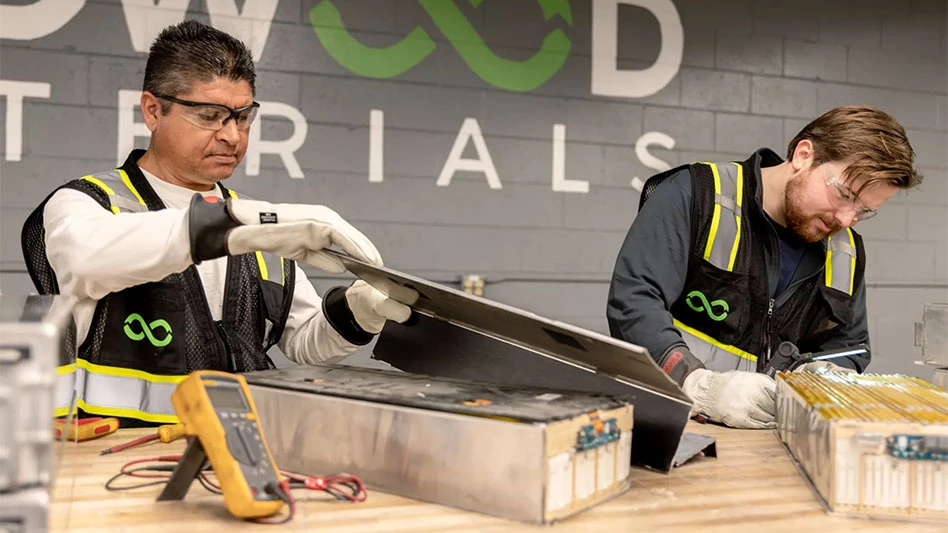
Photo courtesy of Redwood materials
Toyota has agreed to use Redwood Materials' cathode active materials (CAM) and anode copper foil in its production processes at Toyota’s under-construction North Carolina battery manufacturing plant.
The Carson City, Nevada-based battery recycler refers to last year’s agreement to “create a closed-loop solution for batteries.”
“We believe this represents the first time that an automaker is both recycling end-of-life hybrid electric vehicle batteries, like those used in the Toyota Prius, and then returning those same recycled metals into that same automaker’s batteries for use in future electrified and all-electric vehicles (EVs)," Redwood says.
The Toyota supply agreement will help solidify the investments in new capacity Redwood has been making. “We continue to expand our Northern Nevada facility and will soon break ground on our second Battery Materials Campus, outside Charleston, South Carolina,” the company says.
Both of those campuses will recycle, refine and manufacture battery materials, aiming to scale production of components to 100 gigawatt hours (GWh) annually.
While Redwood often refers to its recycling capabilities, the Toyota announcement also makes reference to its plans to handle or import virgin lithium and minerals.
For Toyota’s products, Redwood is targeting a minimum of 20 percent recycled nickel, 20 percent recycled lithium and 50 percent recycled cobalt in its cathode.
The copper anode foil will consist of 100 percent-recycled copper, “making ours the most sustainable battery materials available on Earth," the company says.
“Our large-scale sources of domestic materials will be produced from as many recycled batteries as available, but will also need to be augmented with sustainably mined material that we will source in coordination with our customers," Redwood adds.
The company says most battery minerals currently are produced via a "convoluted supply chain" and then imported to the U.S. only for final battery cell assembly.
"Redwood is making major investments in the U.S. to change this, and we’ll be spending billions of dollars to scale our technology and facilities in the next few years to bring cathode online and ramp production of critical battery components," the company says.
Latest from Recycling Today
- BMW Group, Encory launch 'direct recycling’ of batteries
- Loom Carbon, RTI International partner to scale textile recycling technology
- Goodwill Industries of West Michigan, American Glass Mosaics partner to divert glass from landfill
- CARI forms federal advocacy partnership
- Monthly packaging papers shipments down in November
- STEEL Act aims to enhance trade enforcement to prevent dumping of steel in the US
- San Francisco schools introduce compostable lunch trays
- Aduro graduates from Shell GameChanger program





